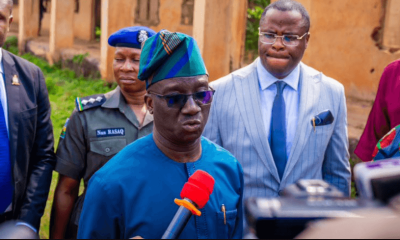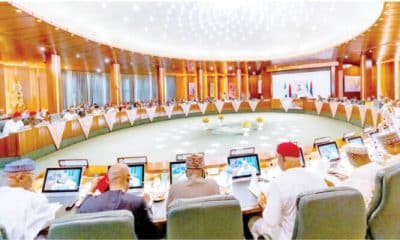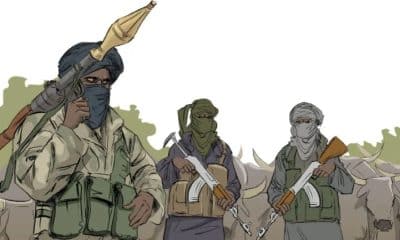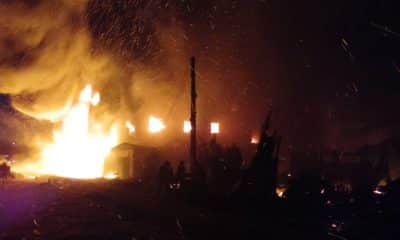Nigeria News
See The Five States Where FG Has Approved Ranching
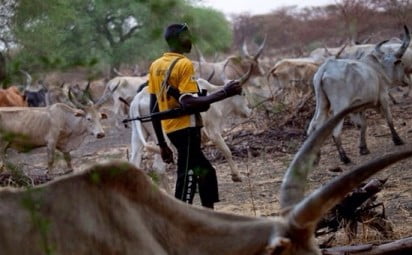
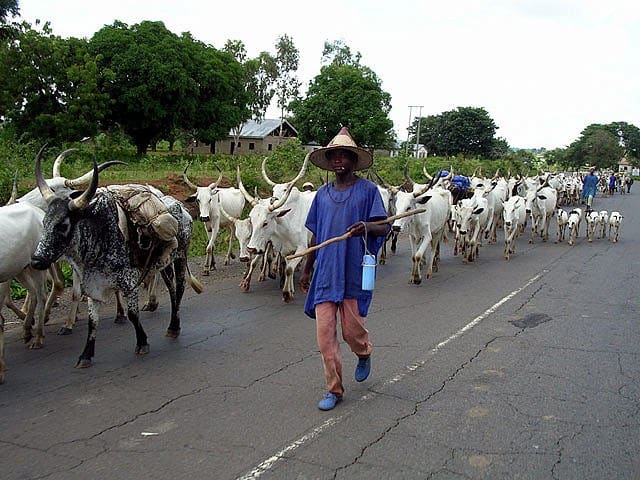
FG Moves To Stop Herdsmen- Farmer Clashes
FG To Create Ranching In Five States
Advocates of ranching as a way for ending the incessant clash between farmers and herdsmen in the country, seem to have won as Federal Government, through the National Executive Council, has approved the creation of ranches across the country.
The National Economic Council (NEC), yesterday agreed to stop herdsmen’s movement, starting with five states – Benue, Taraba, Adamawa, Kaduna and Plateau. This is because they are the states mostly affected by the blood sheds sparked by herdsmen-farmers clashes.
The Council supported the immediate creation of ranches across the country, Ebonyi State Governor Dave Umahi told State House correspondents at the end of the NEC meeting chaired by Vice President Yemi Osinbajo.
According to him, the five states are expected to provide land for ranches.
He said that through ranching, the nomadic herdsmen and their families would have access to medical facilities and schools.
Staying in a ranch, he said, would also improve the well-being of the cattle.
Umahi said foreign herdsmen would have to show some travel documents, even though visa is not allowed for movement of West Africans.
According to him, “Today, NEC took briefing from the NEC technical committee on the farmers and herdsmen conflicts in the various states of the federation. NEC sometime this year came up with a committee following the constant conflicts between herdsmen and farmers. They came up with the committee of nine governors with the VP as the chairman, and the committee went into deliberations.
“After a couple of meetings, they decided that the most five affected states should be visited. So, they came up with a sub technical committee of three governors, chaired by governor of Ebonyi State, with the governors of Plateau, Adamawa as members.
“We were constituted to visit the five core states. Later, other states, like Plateau and Kaduna states, were also added. But we were able to visit only five states, such as Benue, Nasarawa, Taraba, Jigawa and Zamfara states.
“The core causes of the conflicts we were made to understand were ; perception and, of course, our media friends, competition for scarce resources and banditry or what you can call pure criminal activities through cattle rustling, kidnapping etc.
’Today we look at three categories of herdsmen in Nigeria. We look at the foreign herdsmen that come in due to the treaty and we continue to say that the treaty is not being properly implemented. For any herdsman to come into Nigeria from outside, there should be a kind of certification, there must be a letter, even though you are not coming in with a visa, you have to travel with ECOWAS documentation. Animals that are coming into the country are required to be quarantined, but this is not being done.
“So, this one category of them. Secondly, we have the nomadic herdsmen, who during the dry season, travel from up North to the Middle Belt down to the South. This crest conflicts . Also foreign herdsmen coming all through the way from neighboring countries and travelling through the farm lands also cause conflicts.
“Then, of course, we have the migrant herdsmen who migrate for a very long time and settle with the villagers and even inter marry with them. These are the three categories we have in Nigeria. In all, we agreed that movement is not either profitable to the herdsmen because they value the milk from the cow even more than the cow itself.
“So, the movement is not healthy for the cows as it dries up the meat and gives less than two liters of milk per cow per day,” he said
Condemning the issues of foreign invasion by foreign herdsmen, the Gov said a meeting of ECOWAS countries on the subject a agreed movements by the nomadic herdsmen have to stop and occasionally by those who have settled and integrated from other parts of the country, like the Middle Belt, as they sometimes go into conflicts with farmers because of movement of their cows.
Hence it was agreed that the five states that are involved are going to give land. Of which Niger and Kaduna, outside the five states, have given land and Plateau is also giving land. He noted that Ranching is being practised in Mambila, in Taraba State and they have success stories.
“We also agreed that through the Agric Ministry, we have the need to introduce new species of cows. The minister told us that there are new species that produce as much as 60 liters of milk per day per cow, and that the cows weight as much as 900 Kgs but our own weigh less than 200kgs. So, we have agreed that we are going to work on these new species, while also working with our ranching. We also agreed that livestock production in Nigeria has not been taken care of.
“As we are taking care of the farmers by way of the Anchor Borrowers Scheme, of course the farmers cry of the high interest rate. The rate of interest should be between 2 to 5%, so, we should extend those gestures to the herdsmen. And it was discovered that most of these cows are not being herded by their owners. Big men buy these cattle and give them out to the herders So, the children of the herders have nothing to inherit. They, therefore, go into cattle rustling and other forms of criminalities.
“Through this policy and intervention in the livestock production, it will be possible for the herdsmen to own their own livestock and have something for the future. We also agreed that there is need for good life for the herdsmen. Through theses policies their children will be able to go to schools.
“There will be nomadic education and medical facilities through these ranches for the herdsmen and their animals. Grasses will be planted, irrigation and dams will be created for source of water. Lastly, we ask the public to begin to see livestock as another means of investment.” he said.





